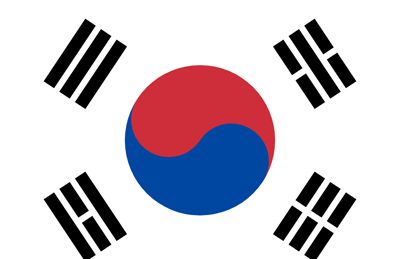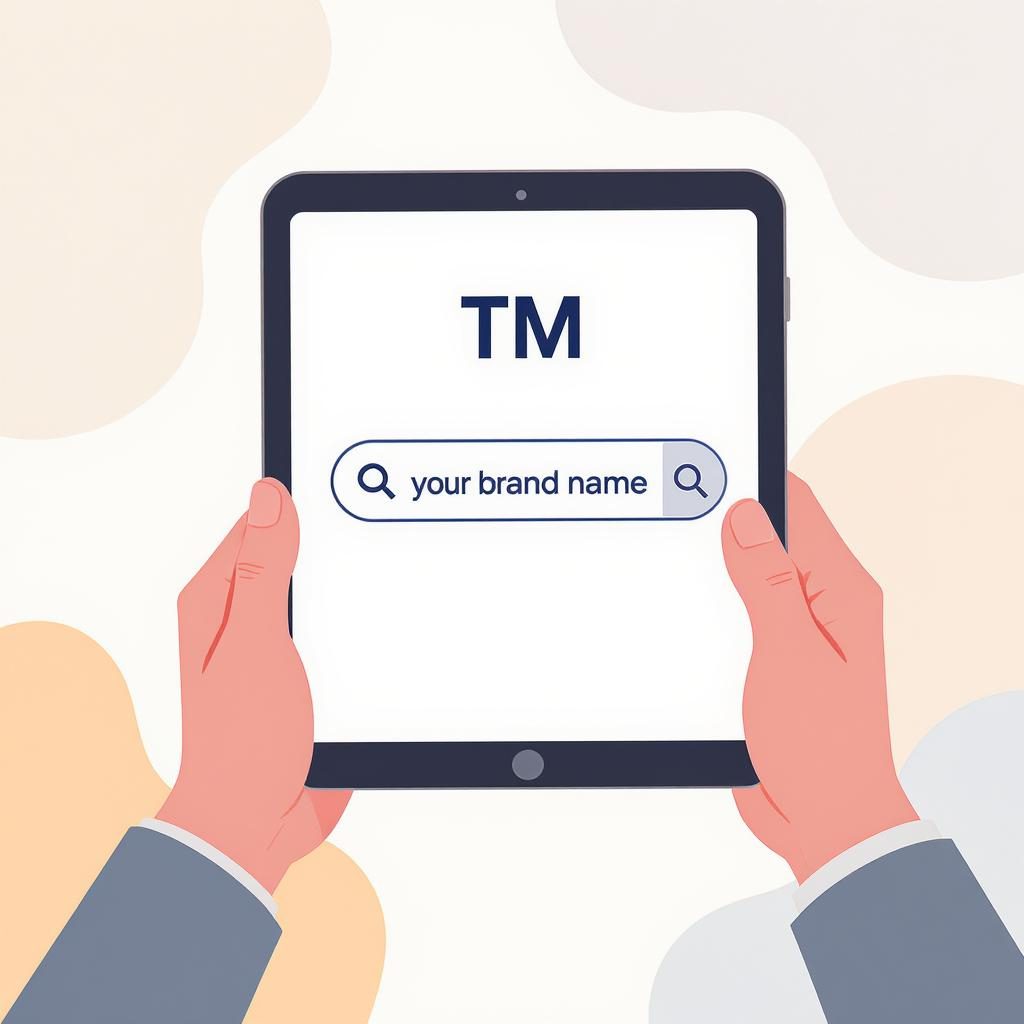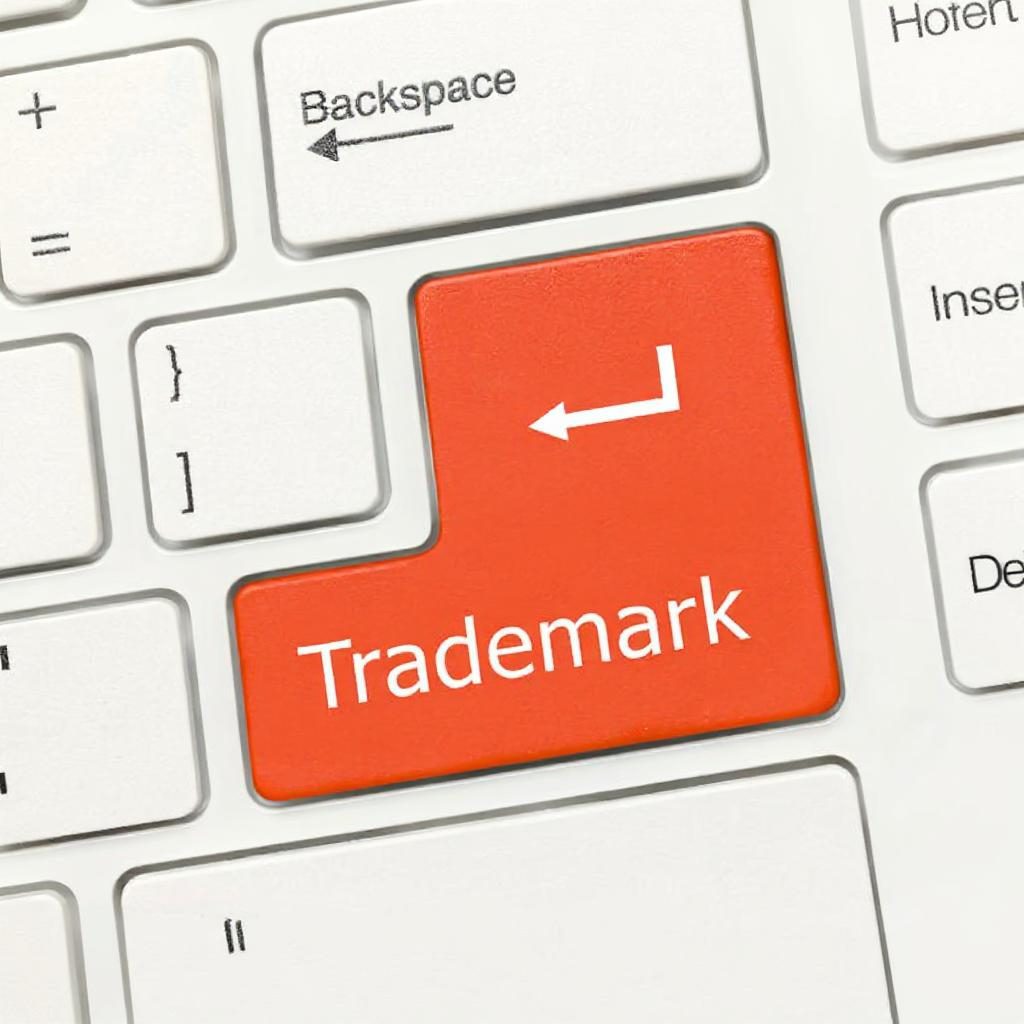
Brand Registration Guide in 2025
In the fast-evolving world of business and intellectual property, timing is everything. Whether you’re launching a startup, building an e-commerce empire, or growing a legacy brand, 2025 presents a rare


In South Korea (Republic of Korea), trademark registration is essential to secure exclusive rights to your brand. The country follows a first-to-file system, meaning the first person to file a trademark application typically holds the rights to that mark. While well-known trademarks may receive limited protection without registration, it’s always safer to officially register your trademark.South Korea allows for multiple-class trademark applications, making it convenient for businesses looking to protect their brand across different categories.As one of the world's fastest-growing developed economies, often referred to as the Miracle of the Han River, South Korea offers significant opportunities for international businesses. If you’re considering entering the South Korean market, it’s highly recommended to prioritize your trademark registration in South Korea to safeguard your brand and business interests.
We can assist you with trademark registration in South Korea. Our designated South Korean attorney handles all legal matters, including trademark clearance and filing, ensuring a smooth and reliable registration process.
The prices are in USD$ for South Korea
Covers filing your application and reporting the progress all the way to registration. 2 classes included. This is our entry-level package.
Covers full trademark registration, including reporting and responding to non-substantive examiner’s objections and free re-filing.
For trademark registration in South Korea, a single-class application applies standard fees, and each additional class incurs the same fees. Our professional fee for the second class is $355.
Our trademark registration in South Korea “ALL IN” package covers government fees, responding to examiner objections (office actions), opposition proceedings, free re-filing, and other additional services to ensure a smooth registration process.
Our “ALL IN” package for trademark registration in South Korea includes government fees, handling examiner’s objections (office actions), opposition proceedings, free re-filing, and other valuable extras for a hassle-free process.
If you receive an office action during trademark registration in South Korea, we’ll promptly notify you and provide an estimate for our response based on hourly rates. Whenever possible, we offer a flat fee for handling objections.
If your budget is limited and our free trademark search shows no obstacles, you can confidently proceed with trademark registration in South Korea.
Our “SAIL THROUGH” package for trademark registration in South Korea includes all standard services plus handling non-substantive office actions, regular progress reports, and free re-filing if your application is refused by the Korean Intellectual Property Office.
Under our “SAIL THROUGH” package for trademark registration in South Korea, free re-filing is included with waived professional fees—you’ll only be responsible for government fees. For more details, please see our FAQ section.
For trademark registration in South Korea, a single-class application is charged standard fees. Each additional class incurs the same fees, with our professional fee for the second class set at $450.
With our trademark registration in South Korea service, you get unlimited consultations valued at $250 to guide you through every step of the process.
Our trademark registration in South Korea service covers government fees, handling substantive office actions, and managing opposition proceedings to protect your brand effectively.
Our most popular option for trademark registration in South Korea offers peace of mind and predictable costs. This is the package we highly recommend for businesses entering the South Korean market.
Why is it a better choice than the “SAIL THROUGH” package:
We handle non-substantive office actions free of charge during your trademark registration in South Korea. If your trademark is refused, you can file a different mark with waived professional fees.
This package offers advantages over the “SAIL THROUGH” package by including free handling of non-substantive office actions and the filing of a Statement of Use. Plus, if your trademark is refused, you’ll have the option to file for a different trademark with our professional fees waived—giving you greater flexibility and peace of mind throughout the registration process.
The South Korean government filing fee for trademark registration in South Korea is KRW 62,000 (approximately US$50) per application, per class.
The South Korean government registration fee for trademark registration in South Korea is KRW 211,000 (about $170) for the first class and KRW 2,000 ($2) for each additional class per application.
The South Korean government renewal fees for trademark registration in South Korea are about KRW 310,000 ($250) for the first class and KRW 2,000 ($2) for each additional class per application.

No, it is not compulsory to use trademark symbols such as ™ or ® in South Korea. However, using these symbols can help notify others that your trademark is registered or claimed, which may strengthen your legal rights. For effective trademark protection, it is important to complete the trademark registration process in South Korea. Proper trademark registration is the best way to secure exclusive rights to your brand and prevent unauthorized use.
Yes, it is possible to claim priority from a foreign trademark application in South Korea. If you have filed a trademark application in another country that is a member of the Paris Convention, you can claim priority when applying for trademark registration in South Korea. To do this, you must file your South Korean application within six months from the date of your original foreign application. Claiming priority helps you secure an earlier filing date, which can be very valuable in protecting your brand through trademark registration in South Korea.
South Korea follows the Nice Classification system for trademark registration. This internationally recognized system groups goods and services into 45 different classes — 34 for products and 11 for services. When applying for trademark registration in South Korea, it’s essential to choose the correct class or classes that cover your business activities. Selecting the right trademark classification ensures your brand is properly protected in your specific industry. Our agency can assist you in identifying the most suitable classes for a smooth and successful trademark registration in South Korea.
Certain types of trademarks are not eligible for trademark registration in South Korea. These include:
Trademarks that are identical or confusingly similar to existing registered marks.
Marks that mislead consumers about the quality, origin, or nature of goods and services.
Trademarks that violate public order, morality, or accepted social customs.
Generic or descriptive terms that lack distinctiveness.
Marks containing national flags, emblems, or official symbols without permission.
During the trademark registration process in South Korea, the Korean Intellectual Property Office (KIPO) examines applications based on several important criteria:
Distinctiveness: The mark must be unique and capable of distinguishing your goods or services from others.
Similarity to existing trademarks: The mark cannot be identical or confusingly similar to earlier registered or pending trademarks.
Compliance with legal restrictions: Trademarks must not violate public order, morality, or social customs.
Proper classification: The goods and services listed must be correctly classified under the Nice Classification system.
Descriptiveness: Marks that merely describe the product’s features, quality, or origin are usually not allowed.
The process for trademark registration in South Korea involves several important steps:
Trademark Search (optional but recommended): Before filing, it’s wise to check if similar trademarks already exist to avoid potential conflicts.
Application Filing: Submit your trademark application to the Korean Intellectual Property Office (KIPO), including details of your mark and selected goods/services under the Nice Classification.
Formal Examination: KIPO reviews the application for completeness and correctness.
Substantive Examination: The office examines the mark for distinctiveness, conflicts with earlier marks, and legal compliance.
Publication for Opposition: If approved, the mark is published in the Trademark Gazette, allowing third parties to oppose the registration within a 2-month period.
Registration and Certificate Issuance: If no opposition is filed, or if any opposition is successfully resolved, the trademark is registered, and a certificate is issued.
In South Korea, a wide variety of trademarks are eligible for trademark registration and protection. These include:
Word marks (brand names or logos made of text)
Device marks (logos, designs, or symbols)
Combination marks (a mix of words and designs)
Three-dimensional marks (shape of a product or packaging)
Color marks (specific color combinations associated with a brand)
Sound marks (unique sounds that identify a brand)
Yes, we provide a free trademark search service to help you check the availability of your desired mark before applying for trademark registration in South Korea. Conducting a thorough trademark search reduces the risk of rejection due to similar or conflicting marks already registered. Our expert team uses up-to-date databases to ensure you receive accurate and reliable search results, giving you confidence in moving forward with your trademark registration in South Korea.
Yes, trademark applications in South Korea can cover multiple classes of goods and services under the Nice Classification system. You can include several classes in a single application, but keep in mind that official fees and processing times may increase with each additional class. Choosing the right classes for your business is crucial for comprehensive protection. Our agency can help you select appropriate classes to maximize the benefits of your trademark registration in South Korea.
No, actual use of a trademark is not required to file for trademark registration in South Korea. You can apply for registration based on your intent to use the mark in the future. However, after registration, the trademark must be used within a certain period to maintain the rights. Failure to use the trademark for three consecutive years may lead to cancellation due to non-use. Therefore, while actual use is not mandatory at the application stage, it becomes important for sustaining your trademark registration in South Korea.
The trademark opposition period in South Korea lasts for two months from the date of publication of the trademark application in the Trademark Gazette. During this time, third parties can file an opposition if they believe the mark conflicts with their existing rights. Successfully overcoming opposition is a critical step in the trademark registration process in South Korea. Our agency provides expert guidance to help you respond effectively and secure your trademark rights.
A trademark registered in South Korea is valid for 10 years from the registration date. You can renew your trademark registration every 10 years indefinitely by paying the required renewal fees. Maintaining your trademark registration ensures continued exclusive rights to use your brand in South Korea and protects it against infringement. Our agency assists with timely renewals to keep your trademark protection active and uninterrupted.
Trademarks may be filed at the state or federal level. State trademarks protect your mark in a specific state while federal trademarks protect your mark in all the states. State trademarks generally provide less legal protection than federal trademarks. Businesses operating in only one state should trademark in that state. Businesses operating in interstate commerce may file for a federal trademark. For example, if you operate a restaurant or a hair-dressing salon in Florida, you are not eligible for a federal trademark. In this case, you should apply for a trademark in the state of Florida. However, if you have two or more restaurant locations in more than one state, in our case, one in Florida and one in Georgia, you are eligible for a federal trademark. A business intending on expanding nationally or internationally should conduct a trademark search and file a federal trademark as soon as possible.
To file a trademark application in South Korea, you typically need the following documents and information:
Applicant’s full name and contact details (individual or company)
A clear representation of the trademark (logo, word, or design)
List of goods and/or services classified under the Nice Classification system
Power of attorney, if the application is filed through an agent or attorney
Priority documents, if you are claiming priority from a foreign application
Payment of the official filing fees
The official trademark office in South Korea is called the Korean Intellectual Property Office (KIPO). KIPO is responsible for examining, registering, and managing trademarks in South Korea. For anyone seeking trademark registration in South Korea, KIPO is the key authority that handles all application processes and legal protections for trademarks.
A specimen of use is real-world proof showing how your trademark is actually used in connection with the goods or services you provide in the marketplace. It’s a requirement when filing certain types of U.S. trademark applications and during post-registration maintenance.
You must show your trademark directly on the product or its packaging. Acceptable specimens include:
Product labels
Tags attached to the product
Product packaging
Instruction manuals
Photographs showing the product with the mark visible
🔴 Not allowed: Drawings, mockups, or promotional ads alone — they don’t count for goods.
You need to prove your mark is publicly used when offering your services. Acceptable specimens include:
A screenshot of your website showing the trademark prominently (usually in the header) along with a description of your services.
Brochures, flyers, or online ads offering the services with your mark clearly visible.
Business cards or signage photos displaying your trademark alongside the services provided.
Submitting the correct type of specimen is crucial — the USPTO can refuse your application if the specimen doesn’t meet their requirements. It must reflect how your trademark appears in actual, day-to-day commercial use.
A power of attorney is generally required when filing a trademark application in South Korea through a local agent or trademark attorney. This document authorizes the agent to act on your behalf during the trademark registration process. However, if the applicant files the application directly without representation, a power of attorney is not needed. Using a local agent can simplify the process and ensure compliance with all formalities for successful trademark registration in South Korea.

In the fast-evolving world of business and intellectual property, timing is everything. Whether you’re launching a startup, building an e-commerce empire, or growing a legacy brand, 2025 presents a rare

In today’s competitive business environment, protecting your brand identity is not just a legal necessity—it’s a strategic move that can have long-lasting impacts on your business’s success. One of the

In today’s fast-paced and highly competitive business world, building a brand that stands out is no easy task. From your logo and business name to your product packaging and slogans,
Trademark Focus is a trusted trademark registration firm with more than 10 years of expertise. We specialize in handling trademark applications and protection services across Canada, the US, and internationally.
No.518, Jianshe Avenue, Jianghan District, Wuhan, Hubei Province